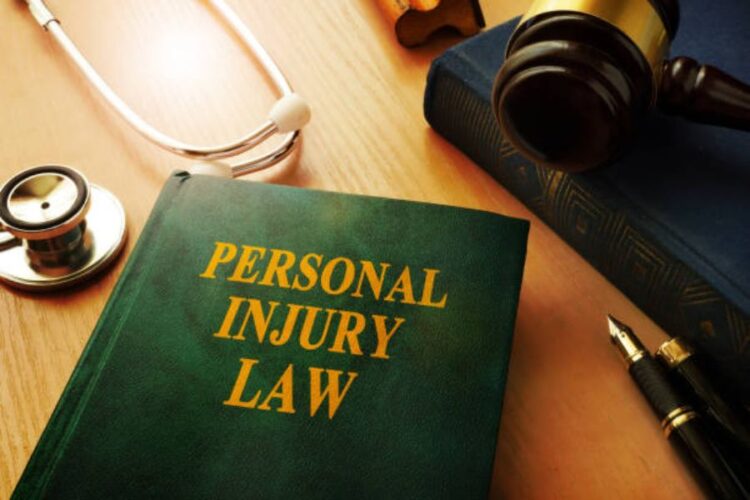Dealing with the fallout from an accident can feel overwhelming. Maybe you’re facing mounting medical bills, lost wages, and the stress of recovery. On top of that, you might feel confused about how to get fair compensation for your pain and suffering. It’s a tough spot, and many people just like you are looking for answers.
This article aims to clear things up. We’ll walk through the common steps of a personal injury claim. Understanding each stage can give you power and confidence as you seek the justice you deserve.
Understanding the Initial Steps After an Accident
Seeking Medical Attention Immediately
Your health is the most important thing after an accident. Don’t wait to see a doctor. Getting immediate medical help does more than just treat your injuries; it also creates vital records. These records prove your injuries came from the accident.
Whether you go to the emergency room, see your family doctor, or get diagnostic tests like X-rays, every visit matters. Make sure to follow all medical advice. Skipping appointments or treatment can hurt your claim later on. Consistent medical care shows the seriousness of your injuries.
Reporting the Incident
Official reports are key pieces of evidence. For traffic crashes, file a police report right away. This report gives an official account of what happened. If you were hurt at work or slipped somewhere, file an incident report with the property owner or your employer.
Also, try to get contact information from any witnesses. Their statements can back up your version of events. Timely reports make your claim stronger.
Gathering Evidence
Solid evidence helps your personal injury case stand strong. Take pictures or videos of the accident scene from different angles. Make sure to photograph any damage to property and all your injuries. Keep track of all your medical records, including doctor’s notes, prescriptions, and therapy records.
Hold onto every bill and receipt related to the accident. This includes medical bills, pharmacy costs, and transportation to appointments. If you missed work, document your lost income through pay stubs or employer statements. Every piece of paper tells your story.
The Role of Legal Representation
Deciding Whether to Hire an Attorney
When you’re hurt, deciding if you need a lawyer can be a big choice. Sometimes, for minor accidents with clear fault and small injuries, you might handle it yourself. But a lawyer often helps when your injuries are serious or the accident was complicated. They can guide you through the maze of legal rules.
Think about how bad your injuries are and how much money you’ve lost. Insurance companies often try to pay out as little as possible. A lawyer knows their tactics. Dedham personal injury lawyer work on a contingency fee basis. This means you don’t pay upfront; they only get paid if you win your case.
What an Attorney Will Do for You
A personal injury lawyer takes a lot of stress off your shoulders. They start by looking into your accident in detail. This includes finding out who was at fault and gathering all necessary evidence. Your lawyer then organizes everything, building a strong case for you.
They handle all communication with insurance adjusters. This is a huge benefit, as adjusters often try to get you to say things that could harm your claim. Your lawyer will negotiate with the insurance company for a fair settlement. If talks fail, they prepare your case for court.
Navigating the Insurance Claim Process
Filing the Claim with the Insurer
After your lawyer gathers initial details, they’ll formally file a claim. This goes to the insurance company of the person responsible for your injuries. This step involves submitting specific forms and providing basic info about the accident. Your attorney will make sure all policy details are clear from the start.
They will also give initial information about your injuries and how the accident happened. This official notice gets the ball rolling. It tells the insurance company that you are seeking compensation.
Dealing with Insurance Adjusters
Insurance adjusters work for the insurance company, not for you. Their job is to settle claims for the lowest amount possible. Be very careful what you say to them. Never give a recorded statement without first talking to your lawyer.
Always be truthful, but only give verified facts. Do not guess or speculate about your injuries or the accident. An adjuster might seem friendly, but remember their main goal. Your attorney will handle most of these talks, protecting your rights.
The Investigation Phase
Once your claim is filed, the insurance company starts its own investigation. They review all the evidence you’ve provided. This includes police reports, medical records, and witness statements. They might also interview witnesses themselves.
In some cases, the insurer might ask you to undergo an independent medical examination (IME). This means seeing a doctor chosen by the insurance company. Your lawyer will advise you on how to handle an IME and protect your interests.
Calculating Damages and Negotiating a Settlement
Types of Damages in a Personal Injury Claim
In a personal injury claim, “damages” refer to the money you can get for your losses. These fall into two main types. “Economic damages” are easy to count. They cover things like medical bills, lost wages from missing work, and property damage. Keep all your receipts for these costs.
“Non-economic damages” are harder to put a price on. These include pain and suffering, emotional distress, and loss of enjoyment of life. For example, if you can no longer do hobbies you once loved, that’s part of it. Lawyers often use common legal frameworks, like multiplier methods, to calculate fair amounts for pain and suffering based on your economic damages and the severity of your injury.
The Settlement Negotiation Process
Negotiation is a back-and-forth process. Your lawyer will send a “demand letter” to the insurance company. This letter outlines your injuries, damages, and the amount of money you’re seeking. The insurance company then usually makes an initial settlement offer. This offer is often low.
Your lawyer will then send a counter-offer. This can go on for a while. Sometimes, if an agreement isn’t reached, a mediator steps in. A mediator is a neutral person who tries to help both sides find common ground. For example, after a car accident, you might demand $50,000, and the insurer offers $15,000. Through negotiation and maybe mediation, you might agree on $35,000.
When a Settlement Isn’t Possible: Litigation
What happens if you and the insurance company just can’t agree? Your lawyer might advise filing a lawsuit. This means taking your case to court. The legal process begins with “discovery,” where both sides exchange information and evidence. This can involve depositions, where you answer questions under oath.
After discovery, both sides prepare for trial. Your lawyer will work to present your case to a judge or jury. The trial itself involves presenting evidence, witness testimony, and legal arguments. It’s a longer process than settlement talks.
What Happens After a Settlement or Verdict
Receiving Your Compensation
If you reach a settlement or win at trial, you will get your compensation. First, you’ll sign a “release of claims.” This means you agree not to sue the at-fault party again for the same incident. The insurance company then issues the payment, usually to your attorney’s trust account.
Your lawyer then deducts their fees and any costs related to your case. These costs might include court filing fees or expert witness fees. After these deductions, the remaining funds go directly to you. This process makes sure all legal and medical bills are handled correctly.
Potential Appeals
In some court cases, either side might disagree with the jury’s verdict or the judge’s ruling. If this happens, they might file an appeal. An appeal asks a higher court to review the case for legal errors. The appeals process can take a lot of time and money. It doesn’t re-examine the facts of the case, but rather looks at whether the law was applied correctly.
Conclusion
Facing a personal injury claim after an accident is a lot to handle. Remember these key steps to protect yourself. Always make your health a top priority and get medical care right away. Document everything related to the accident and your injuries. Understanding how a lawyer can help can make a huge difference. Be patient, because the process often takes time.
While the journey can be tough, being well-prepared and knowing what to expect greatly improves your chances. Studies show that people with legal help often get more money for their claims. For example, some reports suggest that claimants with a lawyer often receive two to three times more compensation than those who try to handle things alone. With the right support, you can secure a fair outcome.










